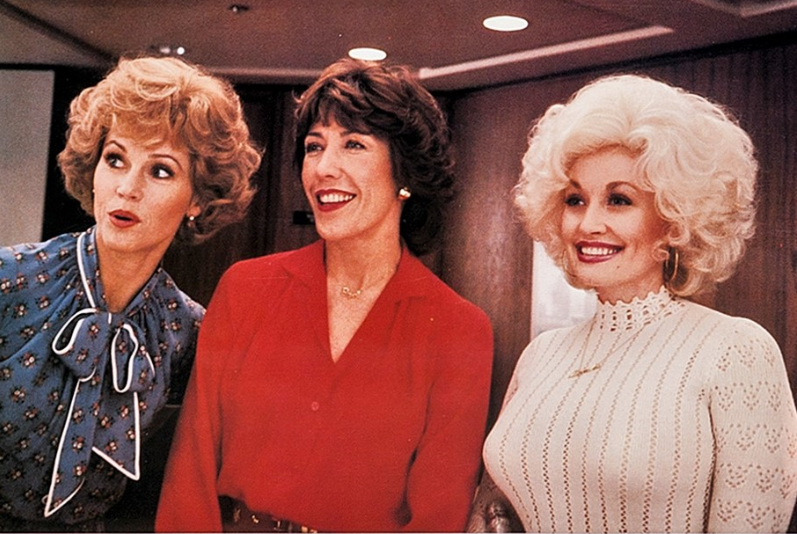Summertime is nearing, and one of my favorite summer traditions after a long week is to make a big bowl of popcorn, get myself and my dog cozy on the couch, and turn on an old movie. Recently, I rewatched 9 to 5, a classic screwball comedy that will have you rolling on the floor one minute and thinking about workplace discrimination the next (hard to believe, I know, but trust me).
9 to 5 stars Jane Fonda as Judy Bernly, a woman who starts a job as a secretary at Consolidated Companies following her divorce. Judy soon befriends Violet Newstead, played by Lily Tomlin, and Doralee Rhodes, played by Dolly Parton. Violet is an experienced and knowledgeable employee at Consolidated, but her boss, Franklin Hart Jr. (“Frank”), played by Dabney Coleman, refuses to promote her or recognize her talent, instead choosing to promote a less-experienced man in her place. At the same time, Frank sexually harasses Doralee on a daily basis by continually making sexual advances toward her, touching her whenever he finds an opportunity, and otherwise making lewd and inappropriate comments nearly whenever he speaks to her.
Although 9 to 5 is a comedy with lighthearted moments of friendship between Judy, Violet, and Doralee, the film also underscores the seriousness of Frank’s behavior. Besides the fact that no employer should treat their employees the way Frank treats Judy, Violet, and Doralee, Title VII of the Civil Rights Act of 1964 makes it unlawful for employers to treat their employees that way or to allow such behavior to occur unremedied. More specifically, Title VII makes it unlawful to fail or refuse to promote any individual because of, among other reasons, their sex. Employees subjected to discrimination based on their sex or other protected characteristics can bring discrimination and harassment claims. In the world of 9 to 5, Violet could potentially bring a sex discrimination claim against Consolidated Companies for Frank’s hiring of a less experienced person outside her protected class (her sex) instead of her. Similarly, Doralee could potentially bring a sexual harassment claim against Consolidated Companies based on Frank’s constant lewd comments, sexual advances, and inappropriate touching.
To avoid lawsuits such as those that Judy and Violet could file, employers should ensure they have strong anti-harassment and equal employment opportunity policies in place and that all employees are aware of and understand those policies. Employers should also have a clearly defined and accessible complaint reporting procedure available to all employees. These small steps can go a long way in reducing employers’ liability for the inappropriate and unlawful conduct of their employees should that conduct occur.
Jake Koch is an associate at FordHarrison.


